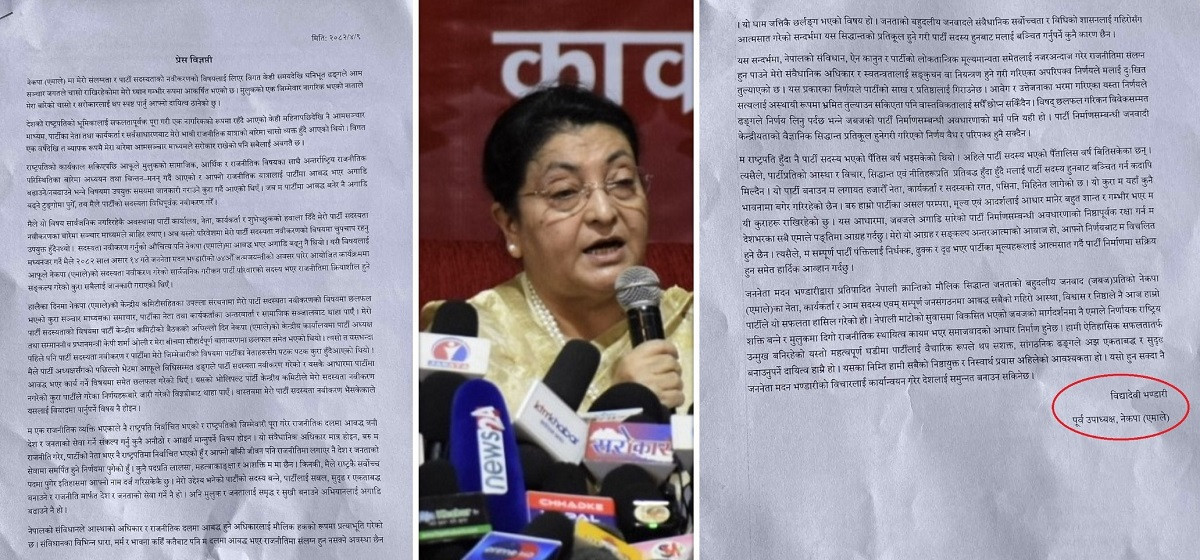KATHMANDU, July 25: Former President Bidya Devi Bhandari has stirred political debate after formally reentering active politics by reclaiming her role within the CPN-UML. Despite earlier requests from the party to remain above partisan politics in her capacity as former head of state, Bhandari on July 14 announced her return to the party fold.
Since then, UML leaders, particularly party chair KP Sharma Oli, have reportedly been attempting to block her political comeback through internal party statutes. Discussions within Oli’s inner circle are said to have explored ways to use the party charter to limit Bhandari’s involvement in active politics.
However, Bhandari has pushed back against these efforts. Speaking at a press conference at Karki Banquet in Baneshwor on Friday, she emphasized that she had spent 35 years in UML before assuming the presidency and identified herself first and foremost as a former party vice-chair.
Desperate search for missing girls as nearly 80 dead in Texas f...

Notably, in the official statement she prepared for the event, Bhandari listed her title as “UML Vice Chair” while deliberately omitting any mention of her presidential tenure, a move some observers have interpreted as a rejection of the symbolic weight of the presidency.
Bhandari, who served two terms as president after stepping down from her party role, asserted that there is no law or precedent barring former presidents from returning to active politics.
Still, her actions have drawn widespread criticism. Many on social media expressed concern that Bhandari’s apparent dismissal of her former role undermines the dignity of the presidential office.
Political analyst Keshav Dahal commented: “If UML dissenters truly want change, they should confront the ‘puppet chairman’ with a clear agenda and fresh leadership from the youth. But dragging a former president into public rallies, chanting slogans in Madan’s name, and turning press conferences into emotional appeals only devalues the prestige of the presidency. This should not happen—it must not happen.”
The controversy has ignited a broader conversation about the role and responsibilities of former presidents in Nepal’s political landscape.





































